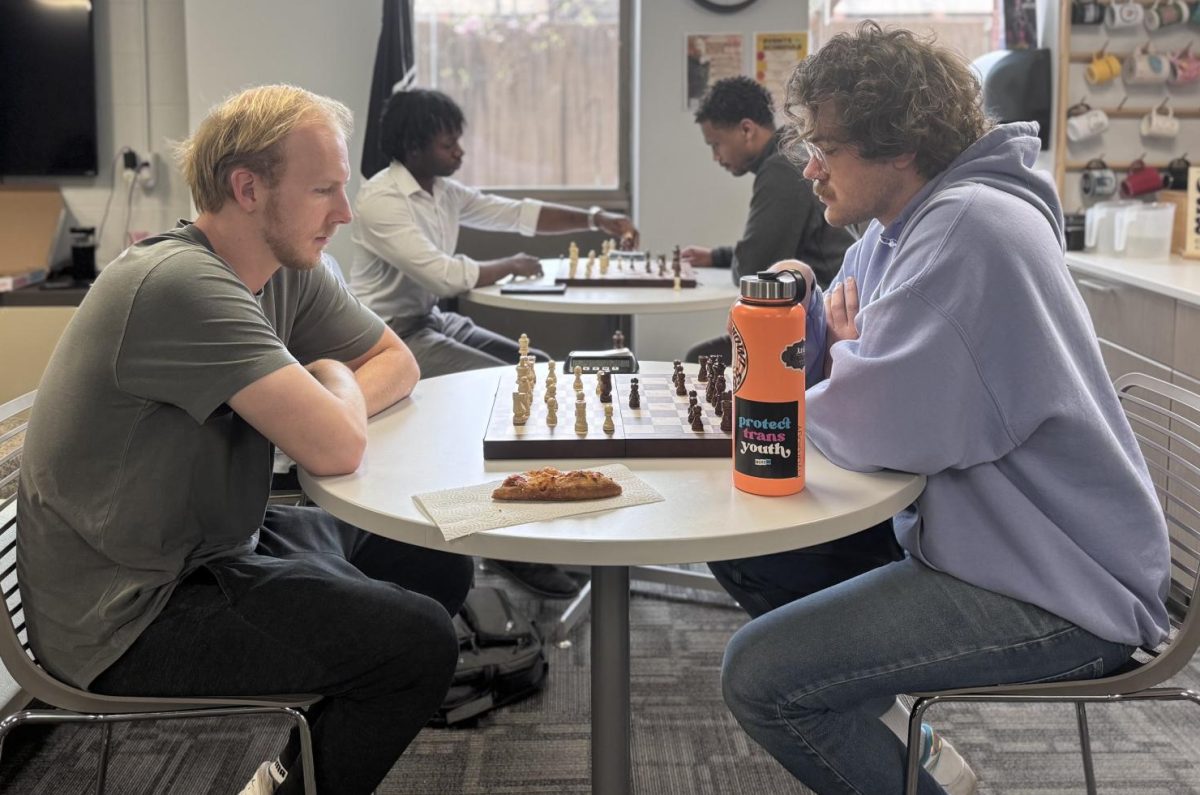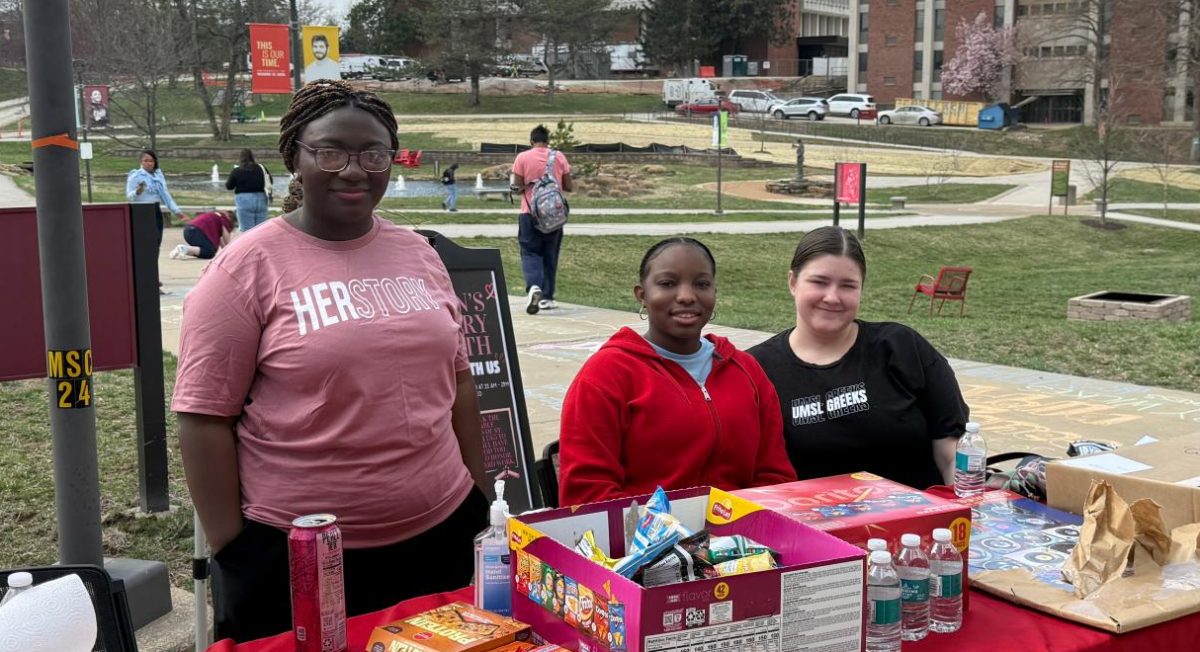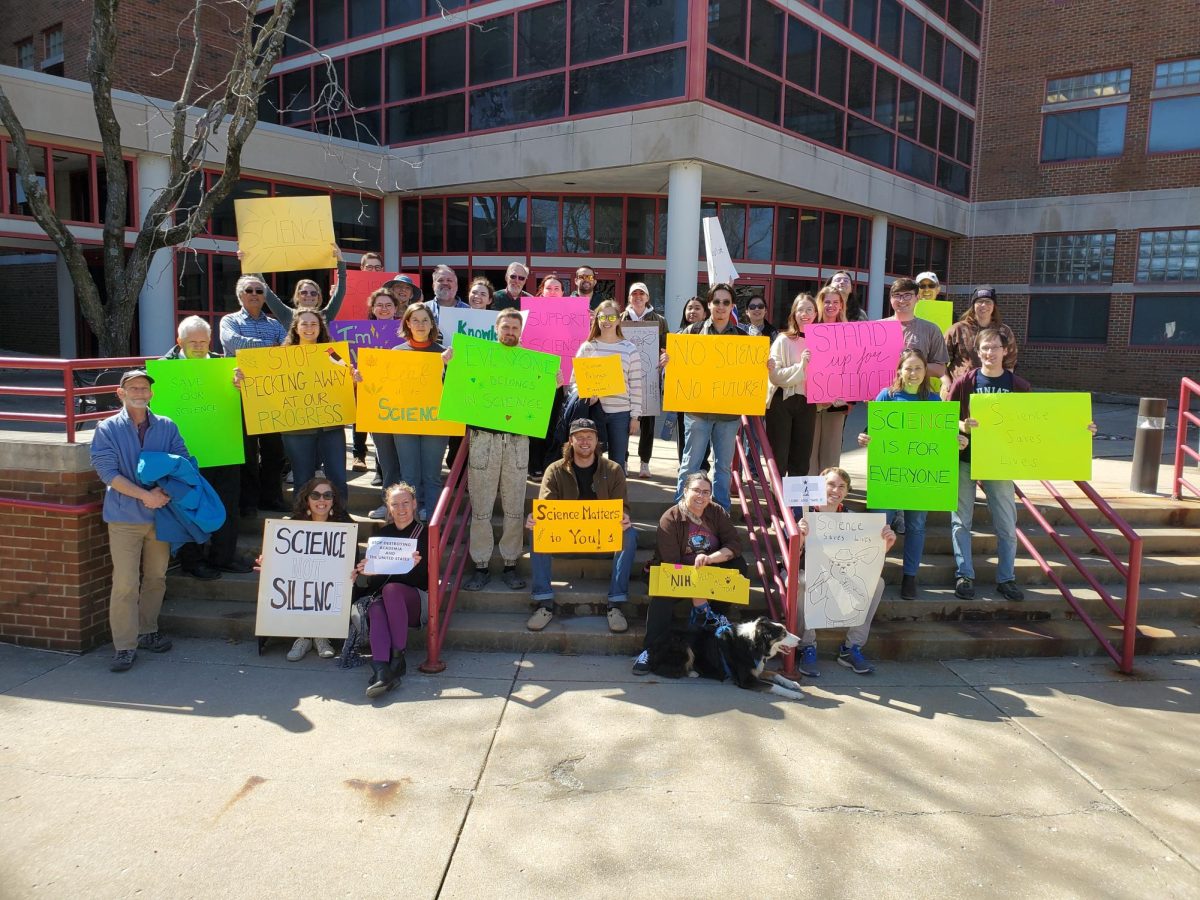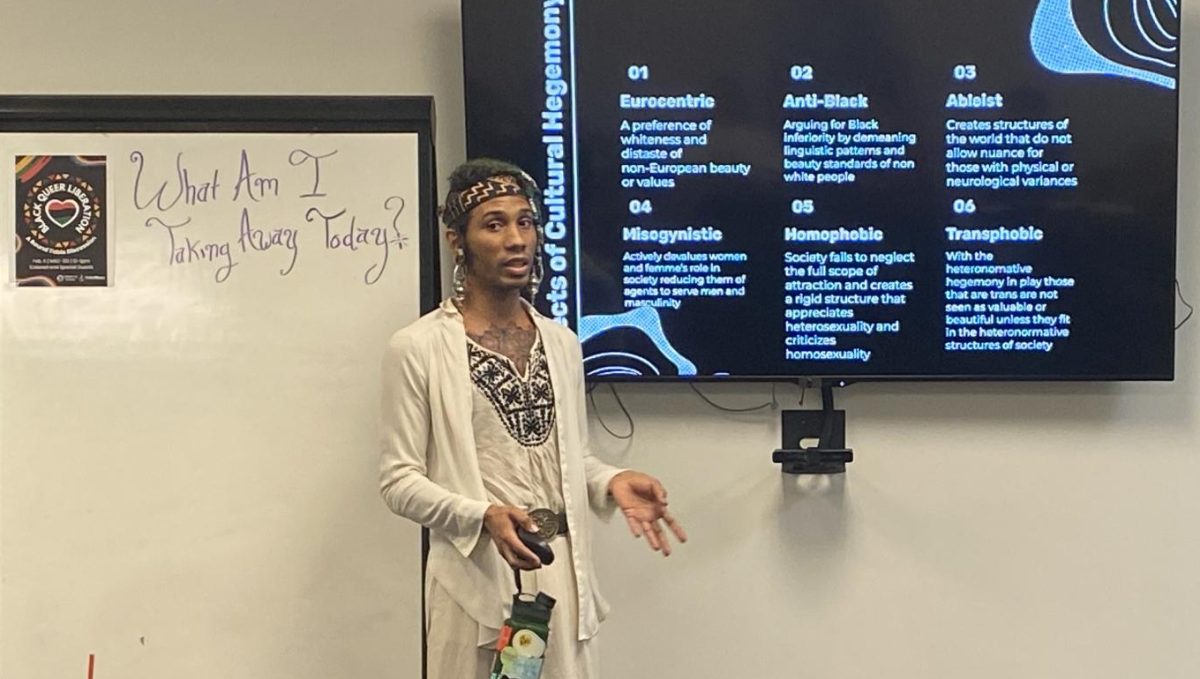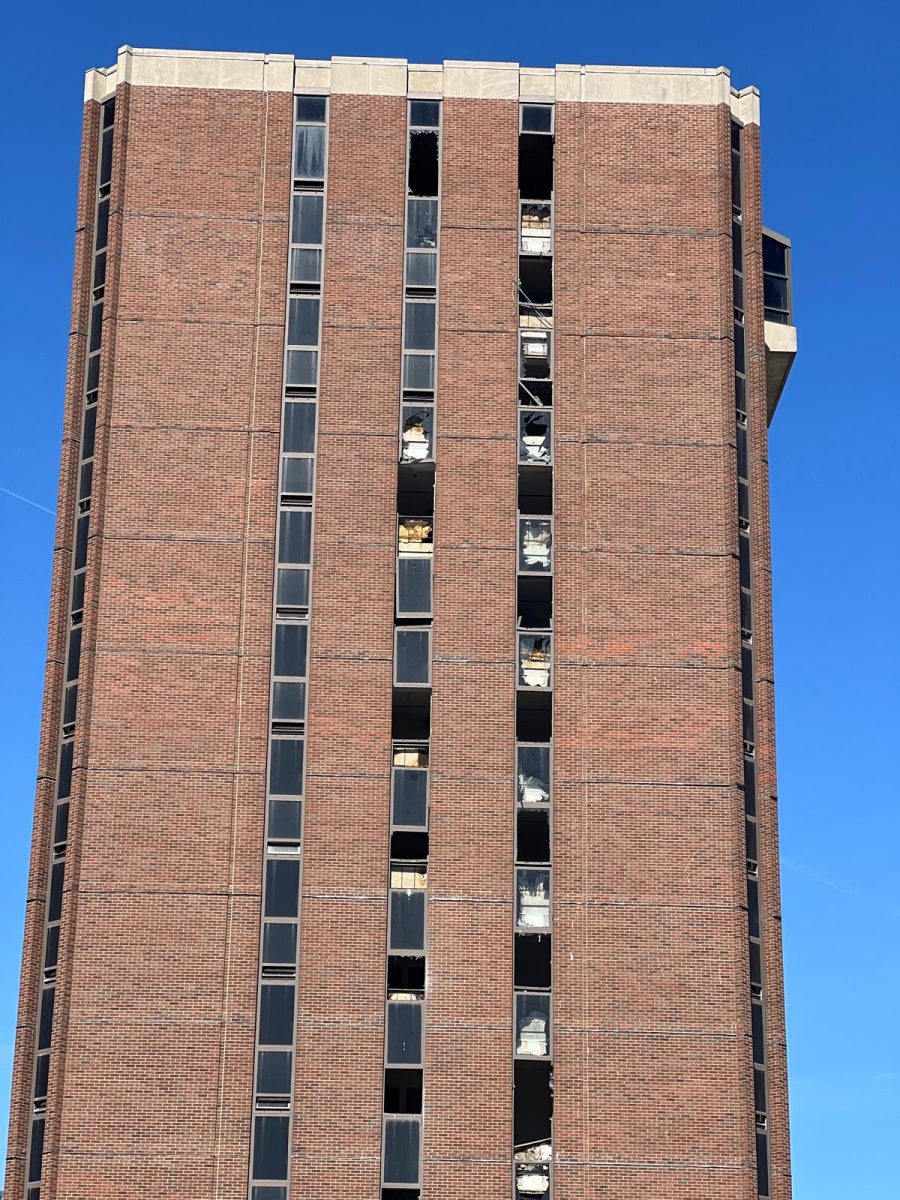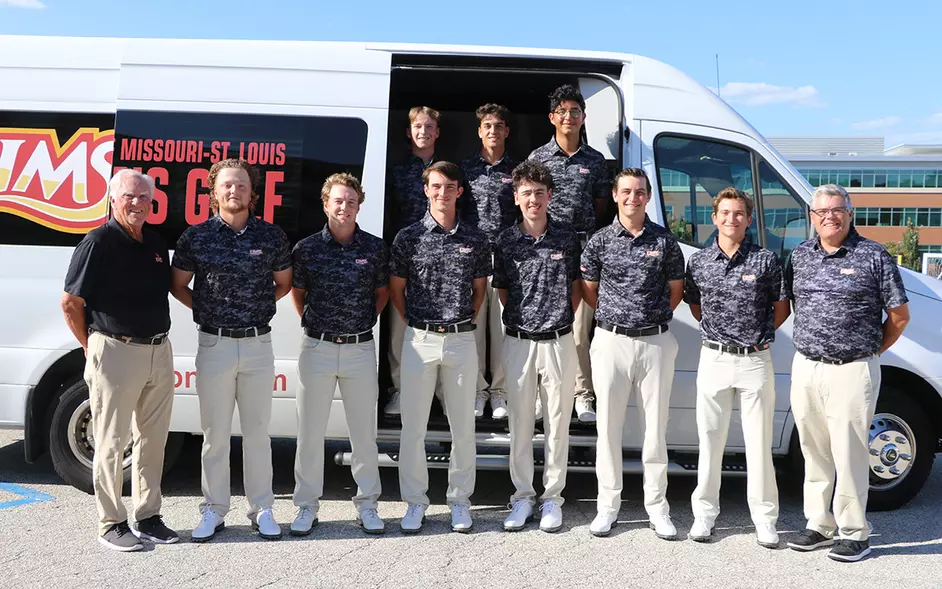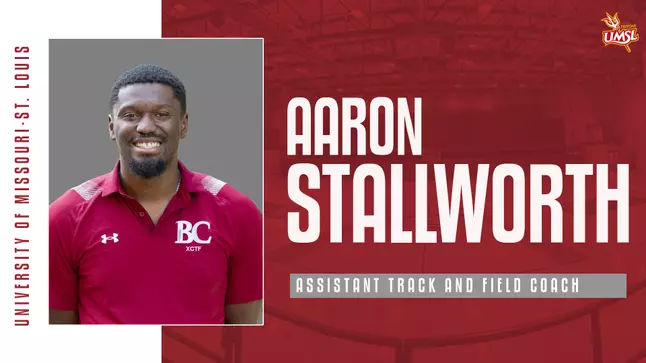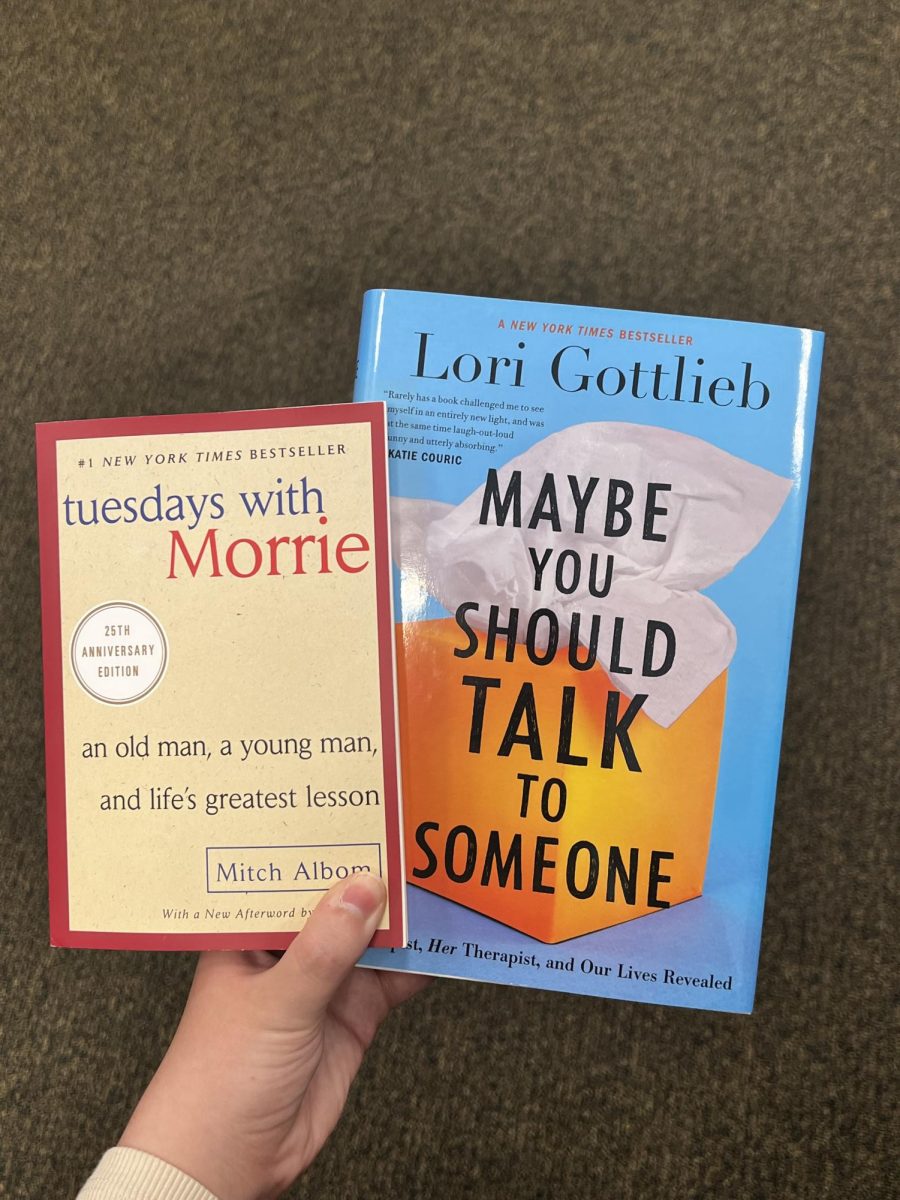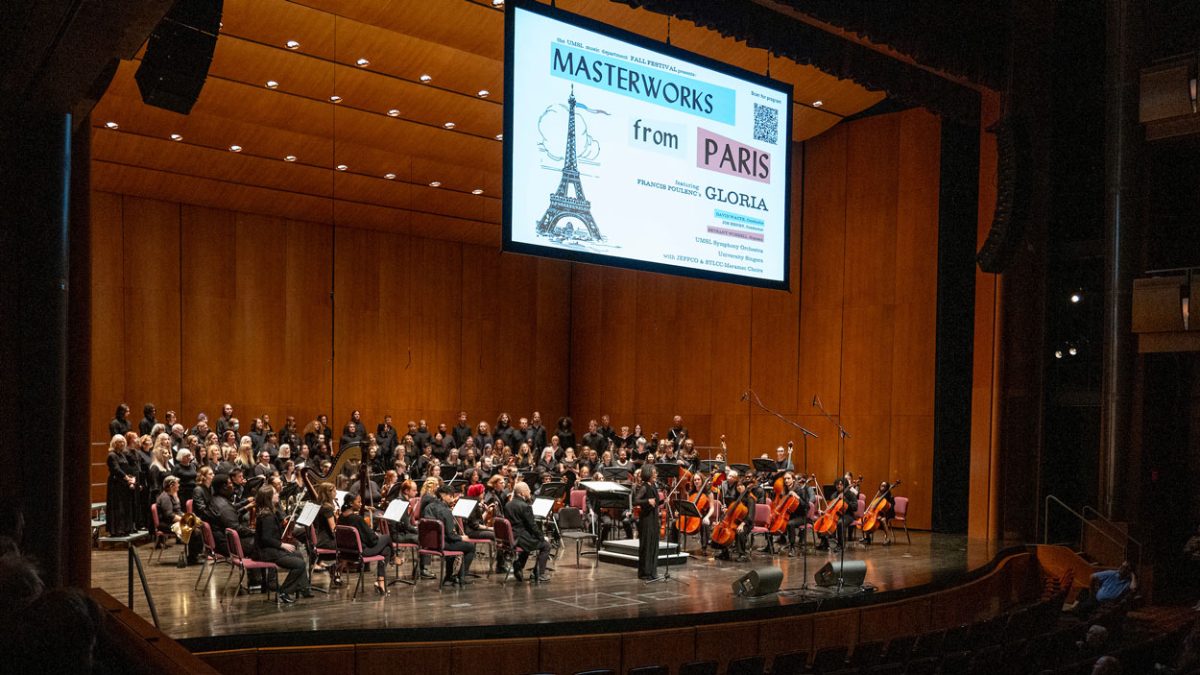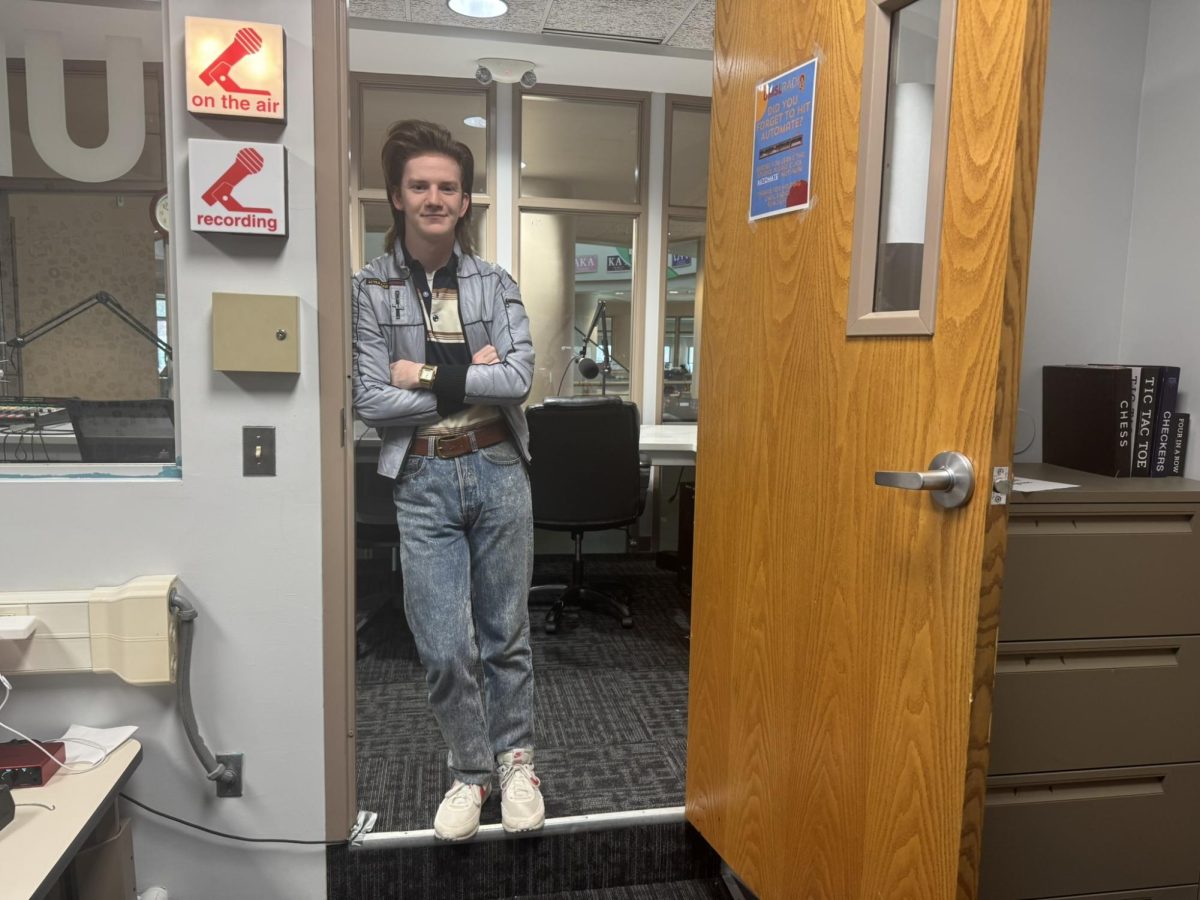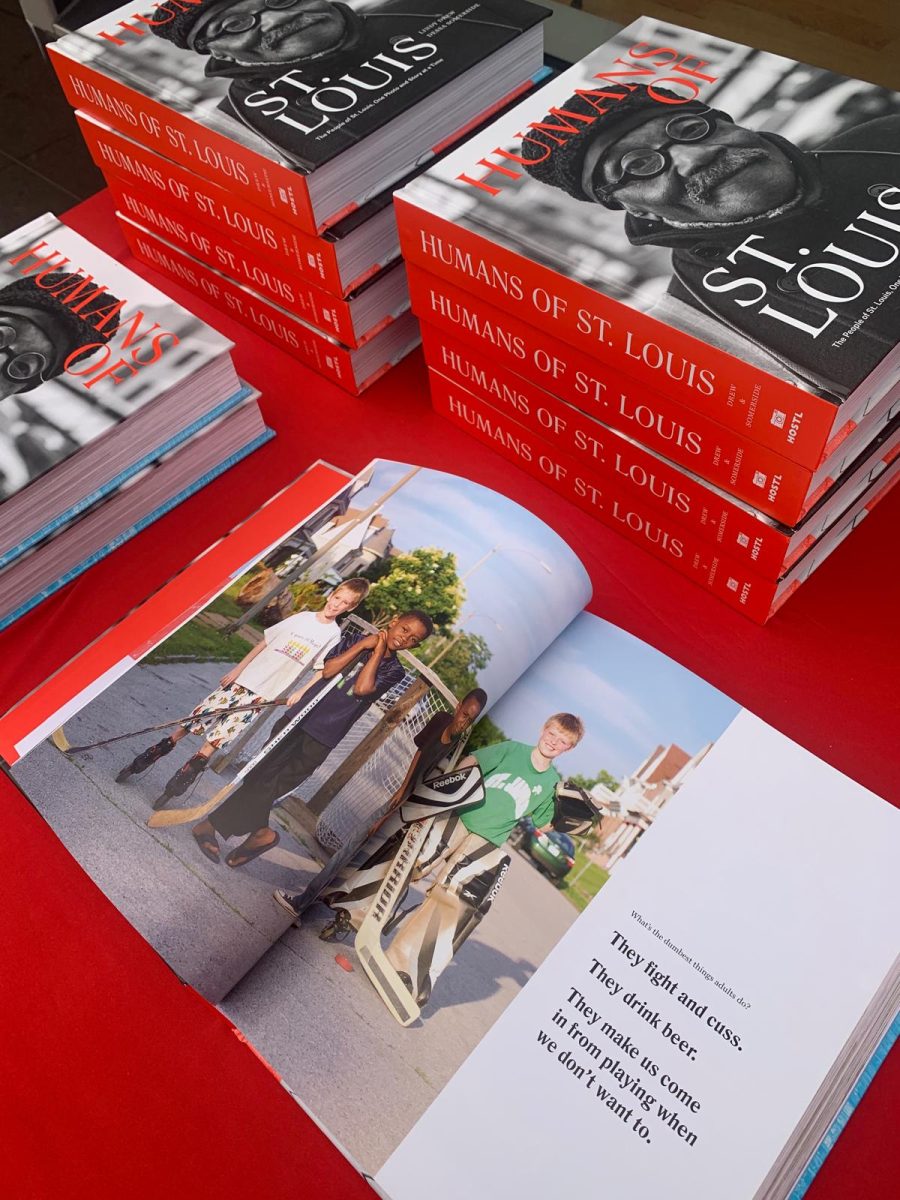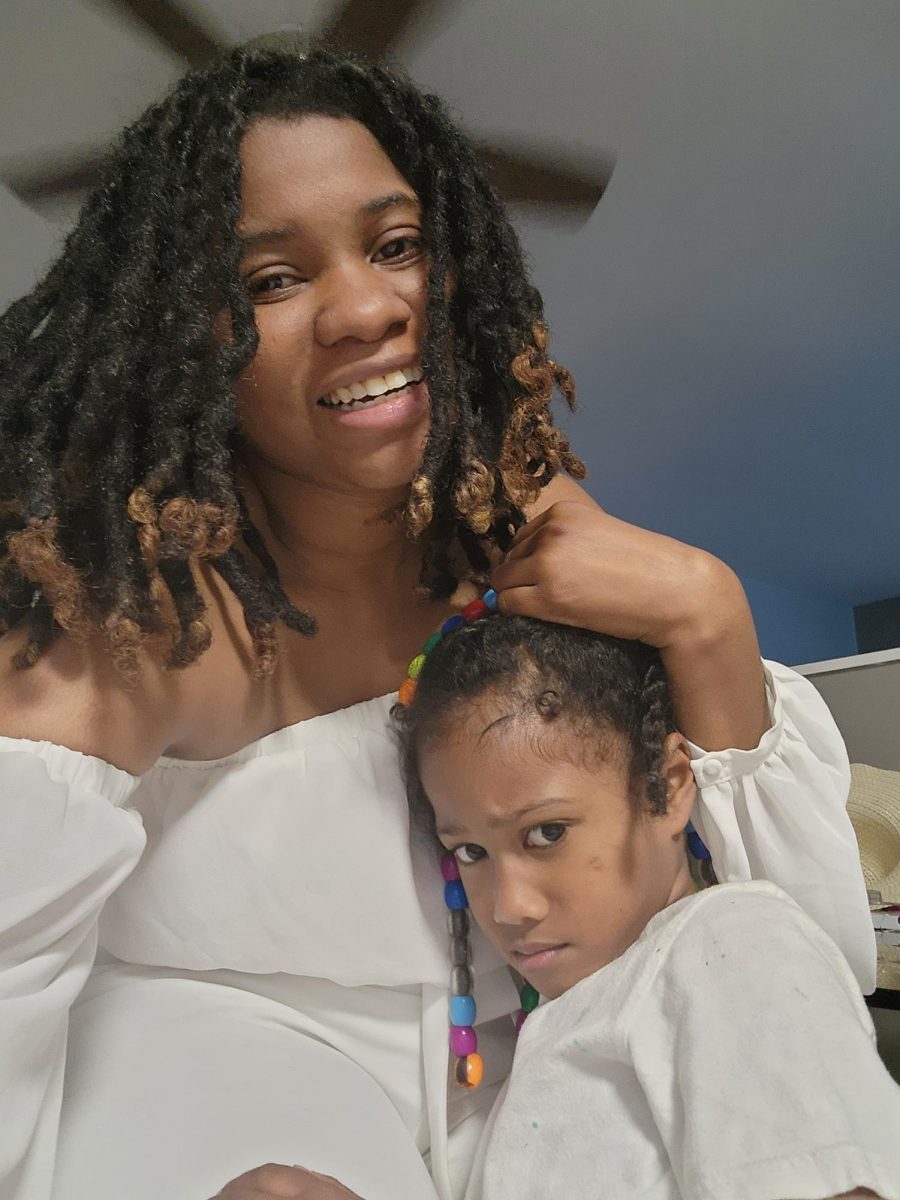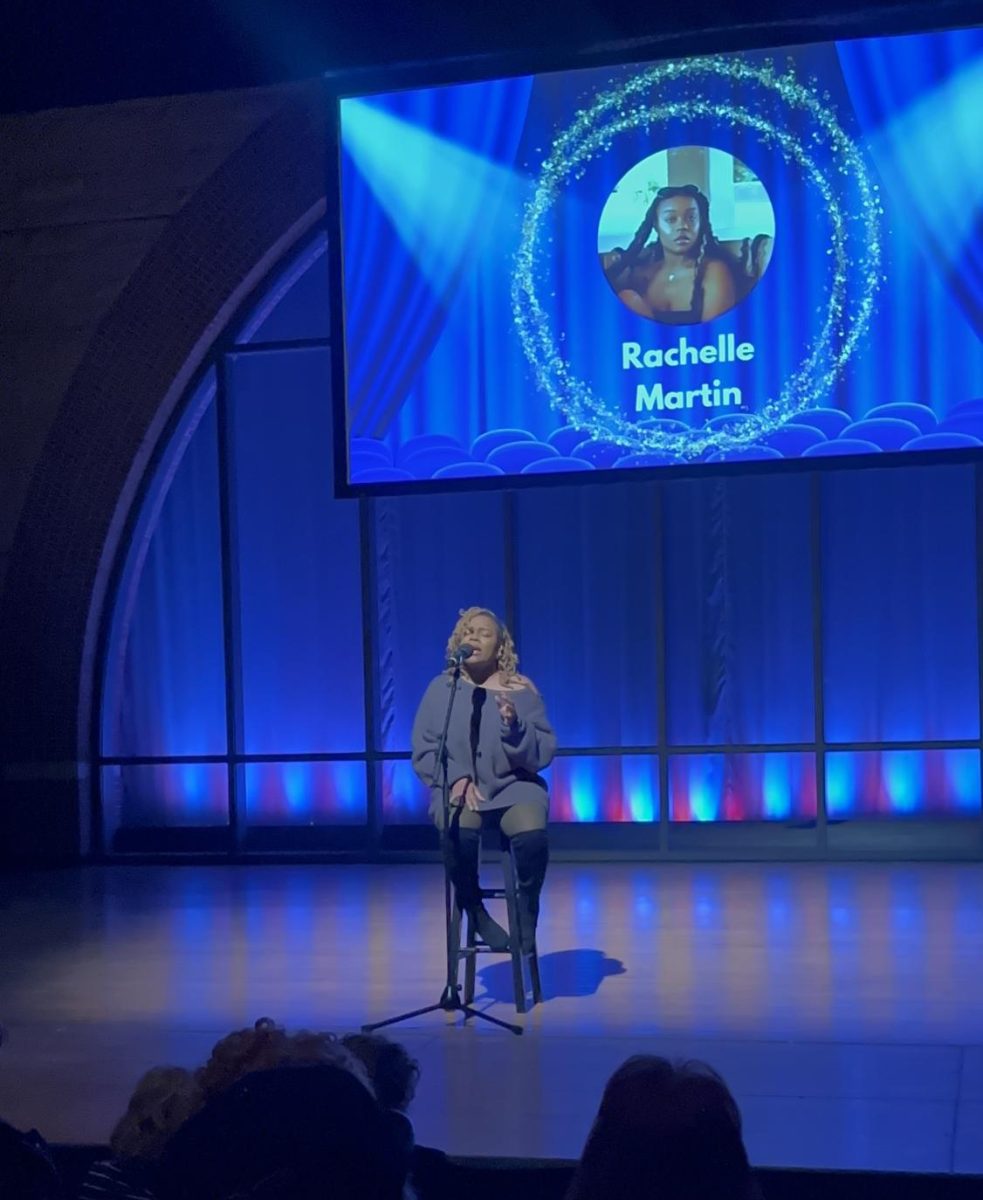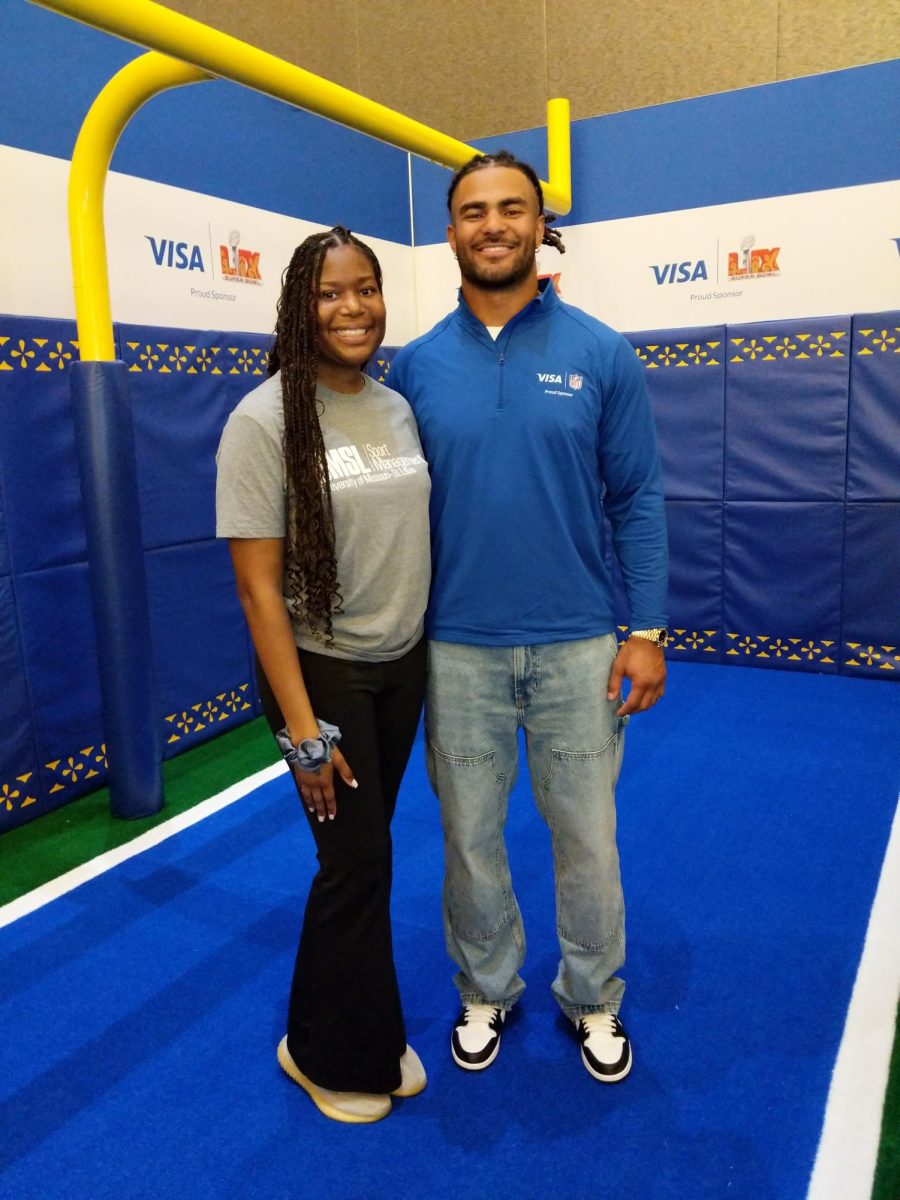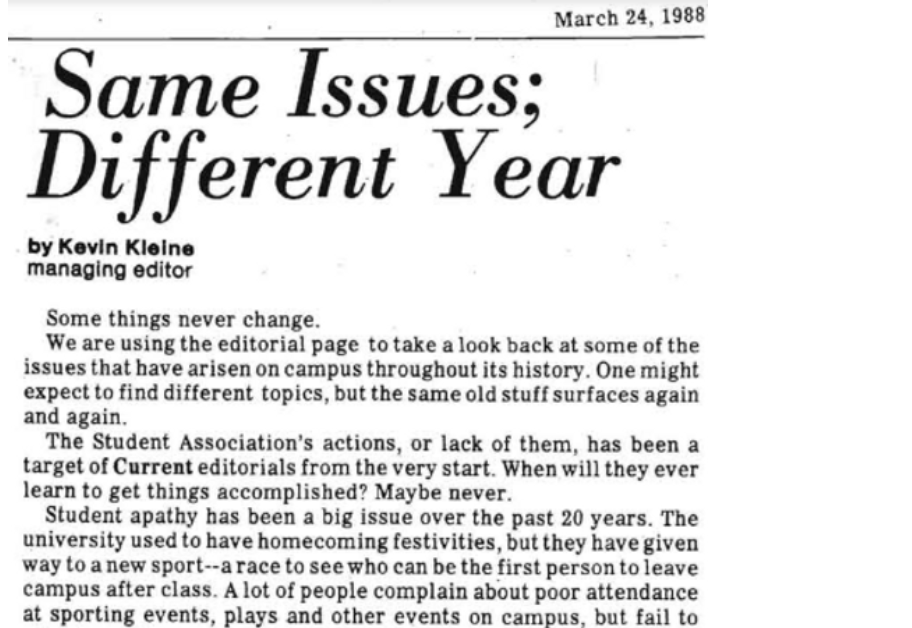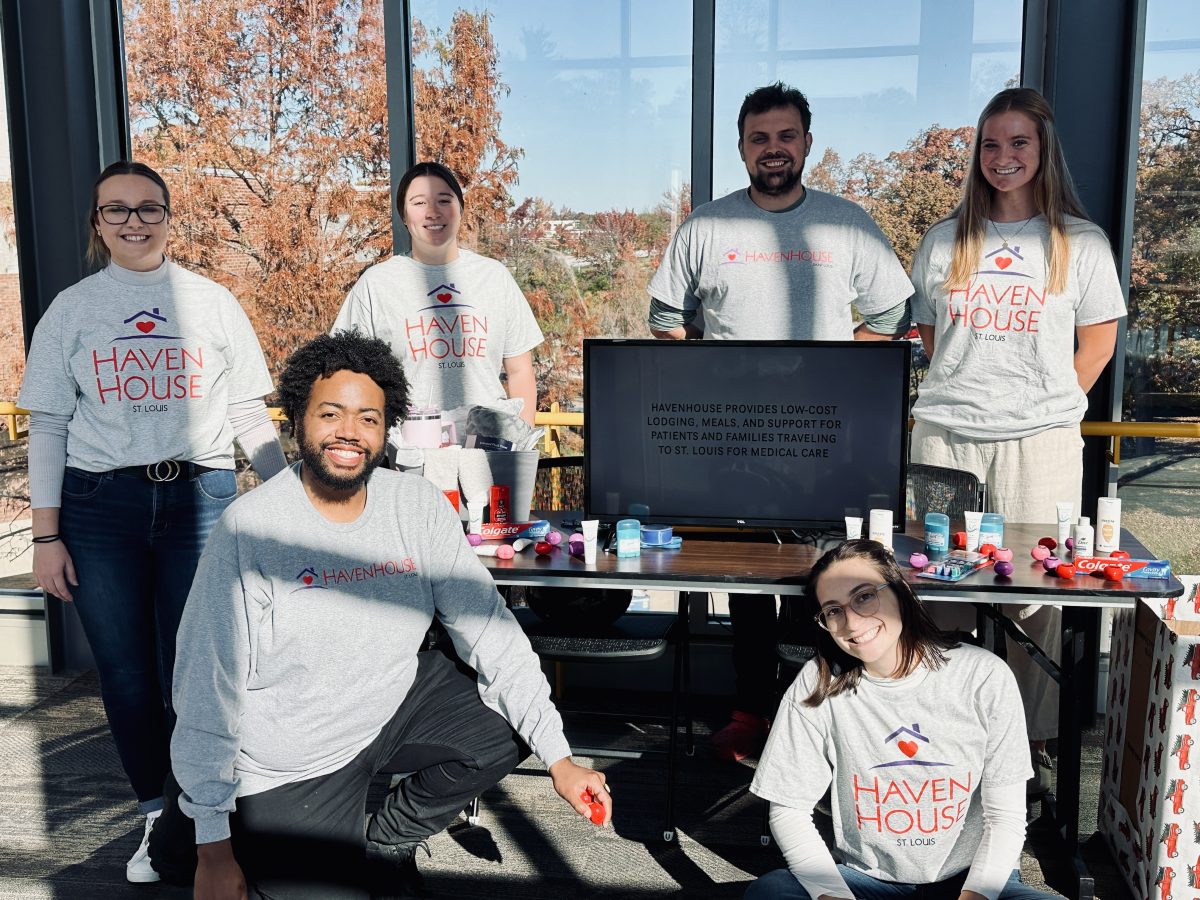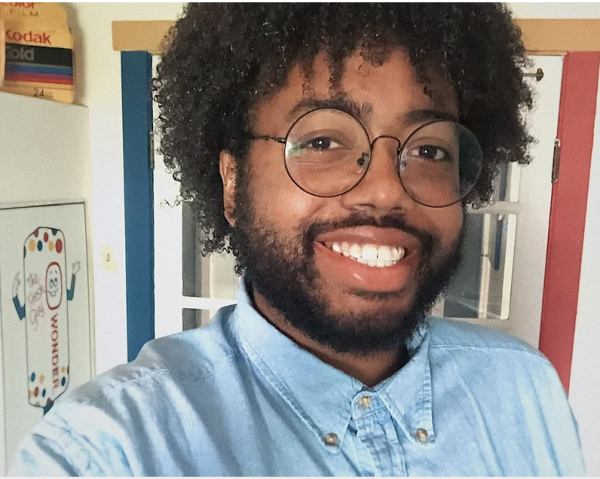Pulling all-nighters in the library, late-night cafeteria visits with roommates and dorm room hijinks are some of the hallmarks of the college experience that most people are familiar with. Whether through personal accounts or media, the college experience is supposed to revolve around personal development, spontaneous adventures and extreme sleep deprivation. That type of campus experience lends itself to students creating lasting memories and forming meaningful bonds with their peers. While it’s a common and exciting experience, it’s unfortunately, not something most Tritons will encounter during their time at UMSL.
Being a commuter school means that students spend little extra time on campus. With many non-traditional students, the dorm pregame and tailgate experience is non-existent. As most students hold jobs, raise families or generally have major responsibilities outside of school, the ability and interest in participating in extracurricular activities is low.
Obtaining a degree while maintaining a somewhat normal routine outside of school is a major plus for most UMSL students and a big reason why people choose UMSL. While other universities consistently have on-campus events with an eager student body ready to show their school pride, UMSL struggles to drum up the same momentum.
In a publication of The Current from March 1988, former Managing Editor Kevin Kleine stated plainly that student apathy has plagued the UMSL campus since the school’s inception. With some editorial flair, Kleine outlined a common problem that students attending commuter schools have experienced and dread – the utter lack of social life at school.
Kleine says in the article, “The university used to have homecoming festivities, but they have given way to a new sport – a race to see who can be the first person to leave campus after class.”
Colorful debates surrounding the pros and cons of commuter school life have lived on the pages of The Current for decades, with no clear solution for the absence of school spirit. As the student body continues to change, these debates will likely continue. No matter one’s stance on how good or bad the commuter school experience is, one truth remains – the overall student experience is improved when the psychological sense of community is present.
Like most universities, UMSL’s sense of community is ultimately powered by the students. Of course, there are teams of enthusiastic employees who dedicate their time and talent to pulling the levers and approving the budgets that help improve the student experience. However, without active student participation, those efforts are about as useful as waterproof teabags.
Despite the challenges, many determined students are steadfast in their efforts to build community while at UMSL. Through collaboration with university leadership and the dedication of these tenacious Tritons, UMSL’s student organizations offer a chance for students to make meaningful connections, develop skills and graduate having had a wholly fulfilling college experience.
For students like Remy Xa, joining a student group at UMSL was a no-brainer. Having had experience with student groups at community college, Xa saw an opportunity to continue their impact on student life on the UMSL campus.
“I’ve always felt passionate about uplifting other students and helping them feel more confident in their own voices,” says Xa.
Now a member of UMSL Radio, Pride Alliance (formerly PRIZM) and UTV, Xa says being involved in student organizations has been beneficial both personally and professionally.
Xa says, “Student orgs are groovy. I’ve enjoyed being able to connect with people across all majors, educational backgrounds and cultural identities in our shared identities as college students . . . Because of my work in student organizations . . . I’ve received at least two tangible job offers.”
Current UMSL Radio General Manager Jalen Walker-Wright emphasizes Xa’s sentiments, saying that participating in various groups has elevated his experience on and off campus.
Walker-Wright says, “Being involved has been very important to my UMSL experience, it has allowed me to create and cultivate relationships here on campus . . . and being in UMSL Radio has opened a lot of doors for me . . .”
Walker-Wright and Xa both say UMSL Radio is the place to be. They invite students of all backgrounds to amplify their voices and develop unique programs based on their interests.
While the evident advantage of getting more career opportunities is present for all students participating in extracurriculars, student organizations provide benefits beyond what is written on paper.
Bessam Mothana, current president of the Muslim Student Association, says, “It is a privilege and a solemn duty to impart the deep wisdom of Islam to those around me, building bridges between different cultures and fostering harmony.”
Mothana says being involved has profoundly impacted his life while at UMSL. He states that being a part of MSA has helped him embolden parts of his personality and grow into a more confident, courageous person.
On the community aspect, Mothana says, “Together, we’ve shared laughter, gained knowledge and confronted obstacles . . . demonstrating that with faith and solidarity, nothing is insurmountable.”
Mothana says to anyone considering joining MSA, “Do not hesitate . . . We are here to support you.”
MSA Treasurer Maryam Adnan joined the group after transferring and despite being shy, Adnan says her involvement has helped develop character.
Adnan says about her journey with MSA, “I’m a transfer student so this is my first year experiencing college culture . . . so I was really overwhelmed . . . I’m normally a quiet and reserved person and I don’t go out of my way to interact with others. But despite being overwhelmed, I’ve been more social than I’ve ever been . . . Overall, it has been a positive whirlwind this academic year for me.”
Regarding MSA membership, Adnan says, “You don’t need to be a Muslim to join the organization . . . just being involved is a great deal already!”
Community as a primary motivator for members of student organizations is a recurring theme. For students like Phong Ly and Nina Nguyen, the Asian-American Student Association was created to build community and heal wounds caused by disconnection.
Ly, the founder, and president of the Asian-American Student Association, immigrated to the US at age 13. Seeking community with students who share his life experience, Ly started the AAA in the Fall of 2023. After the success of their first event, a Lunar New Year celebration, Ly is hopeful that the group will continue to grow for years to come.
The group’s social media manager, Nina Nguyen says, “When I was growing up, I always had a diverse group of friends, but rarely any Vietnamese friends. I felt disconnected from my roots. Working alongside my organization members, I feel very immersed in my culture, and I feel more connected to my roots. I am more comfortable speaking my native tongue and connecting with other Vietnamese students on campus.”
Raising awareness for different causes also serves as a driving force behind certain student organizations. Take the Able-Disable Partnership (ADP) for example. Through collective efforts of members and university leadership, groups like theirs help bring awareness to often overlooked shortcomings in accessibility. Recently, the group led an accessibility walk to audit the campus’s ability to accommodate all students.
Group Secretary Ryan Ruanmwijitphong says that the greatest reward is seeing the impacts of their advocacy efforts firsthand. Oluchi Onyegbula, the ADP president, says the group is more than just an advocacy group.
“It is also about cultivating a healthy and nurturing community where all students can thrive and get along with each other regardless of their disability status. By joining and participating in ADP, you will create a ripple effect of kindness and contribute to the greater good of society,” she says.
When asked about the challenges faced by these groups, students consistently listed budget issues, lack of education about available UMSL resources and unreliable two-way communication with the university as stumbling blocks to each group’s success.
Some people see shortcomings from the administration as a lack of genuine support for their cause while others see missed opportunities for leadership training to incentivize participation in student organizations. While multiple challenges plague student organizations, no challenge is greater than getting students to participate.
Michael Feger of Triton Vets and Hafsa Manzoor of the Muslim Student Association both say that students’ limited time is the biggest roadblock for their respective groups.
Brianna Jones, vice president of the Pride Alliance says, “There is no right or wrong way to be a part of a student group. If you want to be part of Pride Alliance but feel something is holding you back, just be involved in whatever capacity is comfortable for you. You don’t have to attend every event to be valued – you already are!”
Exciting campus events, like the upcoming Intergalactic Pride Disco on April 25th, offer opportunities for connection, dancing and free food. However, Jones and the Alliance understand that making it to the Century Room from 6 p.m. to 8 p.m. isn’t realistic for all students. With that in mind, the Pride Alliance has managed to keep communication open between members with conflicting schedules, utilizing GroupMe and a Discord server to keep in touch beyond their bi-weekly meetings.
The hurdles of fostering an active social life, let alone an active on-campus student organization on a commuter campus, will always be present in some form. But with the driven leaders in these student-led groups taking charge, those hurdles will be no issue as new effective ways to connect with like-minded students are developed and refined year over year.
As Tritons prepare to graduate and new students begin to enroll, every student group hopes to have ongoing growth and maximize outreach. As the torches are continuously passed to incoming leaders, eventually, the idea that UMSL student organizations will continue facing the same problems every year will no longer be an issue.

